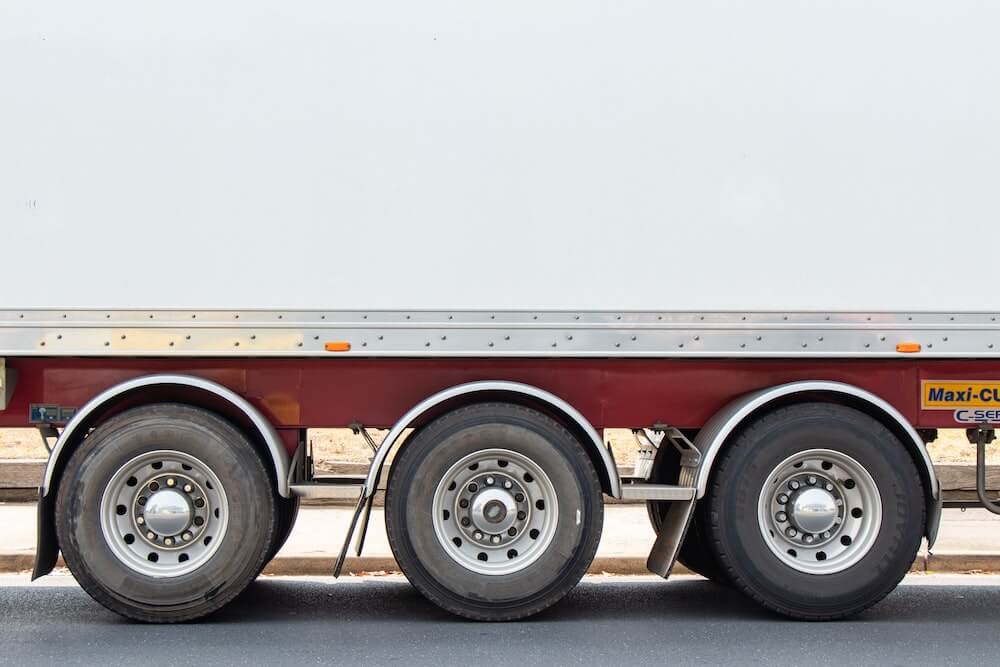What Are the Most Common Trucking Violations?
Trucking routes that weave back and forth across our nation make up the very fabric of American culture. The service truck drivers and companies provide is indispensable to the way we live our lives every day. But the roads truckers use to do their job are the same ones the rest of society uses to go to work, drop their kids off at school, run errands, and visit friends and family. This means that 40-ton tractor-trailers regularly travel alongside, in between, and around vehicles up to 30 times smaller in weight—not to mention motorcyclists, bicyclists, and pedestrians.
As such, federal, state, and local governments have created a structure of regulations to ensure that companies and drivers follow practices that have been determined safest. But not everyone obeys these rules to the letter each time they drive a truck, make an inspection, load cargo, or dispatch drivers. In the following article, we’ll look to answer the question: What are the most common trucking violations? To speak with an experienced lawyer in trucking law and regulations, contact the office of Krzak Rundio Gorman, Injury Attorneys with further questions.
The Most Common Truck Driver and Truck Company Violations
The Federal Motor Carrier Safety Administration (FMCSA) is the federal government body that regulates the trucking industry in the United States. Federal agencies like the FMCSA and the U.S. Department of Transportation (DOT) work to devise a system of laws to keep truck drivers and companies operating in a way that is safe to them and other vehicles on the road. This set of rules encompasses a wide variety of trucking industry issues, including some of the following:
- Vehicle inspection and maintenance
- Fueling requirements
- Vehicle parts
- Driver training and hiring
- Emergency protocol, licensing, and recordkeeping
- Truck loading and unloading
- Hazardous cargo
- Drug and alcohol use
- Safety devices that must be used if a truck breaks down
A trucking violation occurs when one of these rules is broken by a semi driver, truck company, or other group or individual involved in the trucking industry.
The following are some of the most common trucking violations:
- Moving Violations. Violating safe driving laws is one of the most common truck driver violations. Drivers of commercial motor vehicles have a duty to follow all rules of the road, and when the FMCSA applies a higher standard, it must be followed above the regular requirements. According to the FMCSA, truck drivers’ most common moving violations include speeding, following too closely (tailgating), improper lane changes, reckless driving, improper turns, failure to yield the right of way or obey traffic signals, and railroad crossing violations.
- Hours of Service (HOS) Violations. FMCSA regulations limit how many hours truck drivers can spend on the road. These limits depend on whether truckers are carrying passengers or property only. For example, a truck driver carrying cargo may only drive a maximum of 11 hours after 10 consecutive hours of rest. However, trucking companies are infamous for pushing drivers to cover more miles on increasingly tighter schedules. HOS violations are among the most common and dangerous violations in the industry. Fatigued truckers are a serious risk to themselves and others. Because of this, fines for breaking HOS rules can reach to over $16,000.
- Overloading or Improper Loading. Because an overloaded or improperly loaded truck can cause dangerous safety issues, state, federal, and municipal laws regulate how a truck must be loaded and how much it can carry, based on gross weight and number of axles. Illinois and the city of Chicago both have strict overloading regulations and fines to prevent issues like brake and transmission damage, road surface damage, tire blowouts, engine failure, and rollover or jackknife accidents. But trucking companies are sometimes quick to cut corners to save time loading or delivering more cargo on a single trip, making overloading another common trucking industry violation.
- Substance Abuse. The violation of U.S. DOT and FMCSA substance use laws is another major issue plaguing the commercial trucking industry. Studies published over the past several years have seen as many as one-third of drivers self-report amphetamine use while on duty. At the same time, the rate of behind-the-wheel alcohol abuse is higher among truckers in the U.S. than in any other nation. While alcohol and drug regulations for commercial driver’s license (CDL)-carrying truck drivers are rigorous, substance use violations continue to be prevalent.
- Recordkeeping Violations. Truck drivers and trucking companies found guilty of failing to maintain or upkeep records, falsifying records, or destroying records may be subject to penalties. Trucking records usually refer to company logbooks documenting items like driving time and hours, dispatching and scheduling information, and trucker disciplinary actions. These types of records may be doctored or erased in an attempt to evade liability after a truck accident. Part of a truck accident lawyer’s job is to make sure this doesn’t happen, or to reveal the evasion through discovery in litigation.
- Driver’s License Violations. Another common violation in the trucking industry is driving without the proper licensure. Those driving commercial motor vehicles are required to have the appropriate CDL required for their job. A violation may mean driving with an expired license, driving with the wrong class license, driving after a license has been suspended or revoked, attempting to secure a license in more than one state, or driving without a license at all. In order to drive a commercial vehicle like an 18-wheeler, a license applicant must be able to prove they have the skill, knowledge, and physical aptitude necessary to carry out the task safely. A driver without a license, or one who attempts to skate by on the wrong type of license, may not be qualified or reliable.
There are a number of other violations that occur regularly within the trucking industry. These include driving while using a mobile phone, neglecting to conduct proper pre-trip inspections, allowing unauthorized passengers on board, failing to wear a seatbelt while driving, inadequate training for drivers, and not using the proper warning devices when stopped on the side of a road or highway. All of these violations can significantly increase the risk of an accident.
What Happens After a Trucking Violation?
If a tractor-trailer driver or company is found to be in violation of a federal, state, or municipal trucking regulation, they may be required to pay fines, undergo further training, or take a suspension period before driving or dispatching drivers again. A driver’s CDL license may be suspended or revoked, depending on the type, severity, and circumstances of the violation. In some situations, a truck driver experiencing a substance abuse disorder may be pulled from their duties and required to complete a rehabilitation program. Trucking agencies may also have their own rules for dealing with truckers who have violated an internal company regulation.
More importantly, the consequences of trucking violations can be even worse for injured victims of truck accidents caused by those who flout the rules designed to keep people safe. Most truck drivers are hardworking individuals who strive to do their job safely and effectively. However, thousands of people killed yearly in truck accidents that could have been prevented had the companies and drivers not broken laws to increase profits. If you or a loved one was injured in a truck accident, you know how devastating one person’s negligence is and how it can completely shatter the lives of others.
Individuals injured in an accident caused when federal or state trucking laws were violated may be entitled to compensation. Contact Krzak Rundio Gorman, Injury Attorneys to discuss your legal options with a professional and experienced truck accident attorney from our firm. We will provide an honest assessment of your case. A lawyer with experience winning difficult truck accident cases can advise you on whether you are eligible to file a claim against a trucking company or driver.











